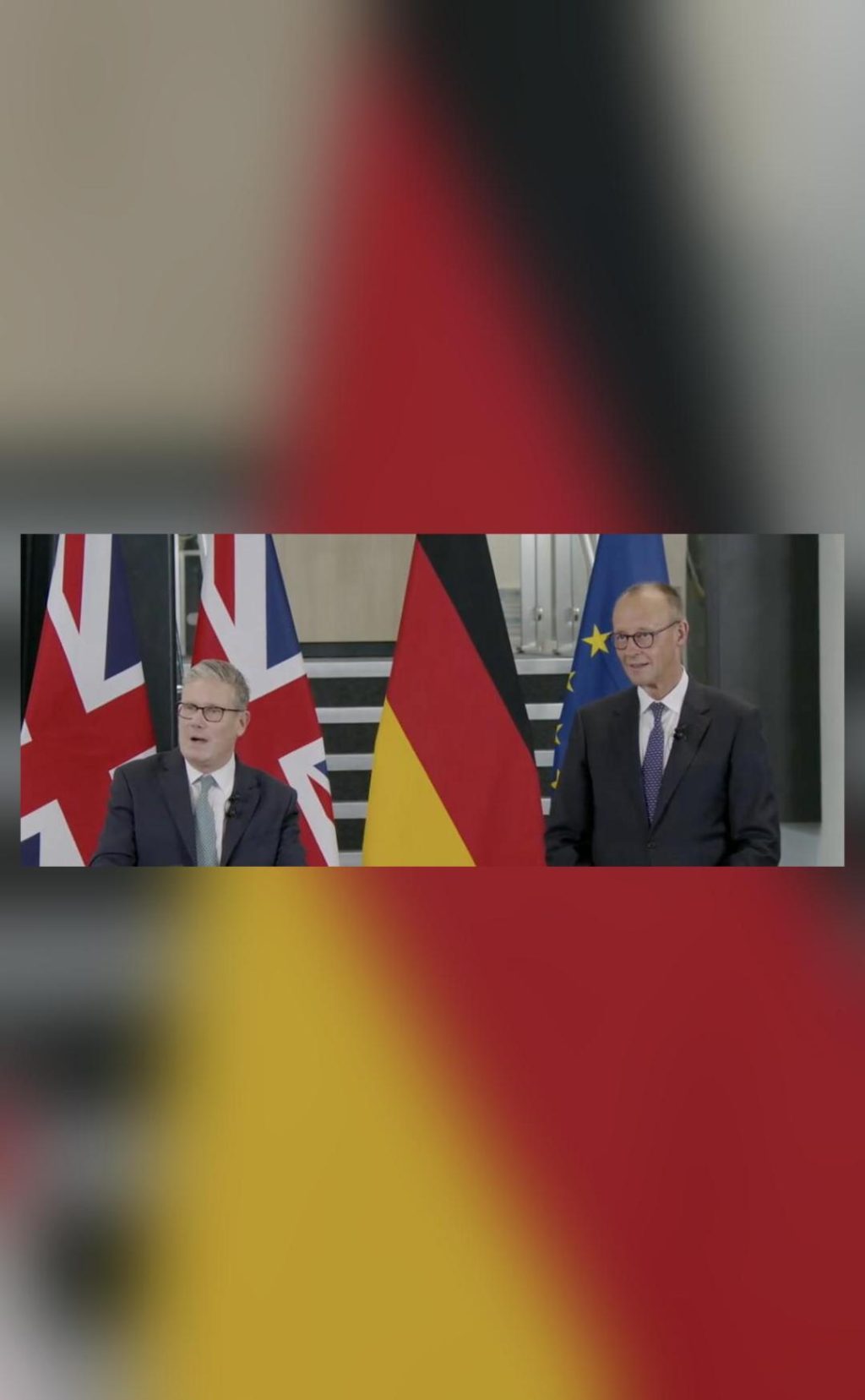
UK, Germany Sign Treaty to Enhance Defence & Migration Cooperation
In a significant move to strengthen ties between the two nations, British Prime Minister Keir Starmer and German Chancellor Friedrich Merz signed a treaty on Thursday to boost defence and economic cooperation, as well as to jointly tackle migrant smuggling. This historic pact marks a significant milestone in the relationship between the UK and Germany, 80 years after the end of World War II.
The treaty, which was signed in a ceremony in Berlin, aims to deepen cooperation between the two countries in various areas, including defence, security, and migration. The pact also includes plans to strengthen connectivity by establishing a new direct rail connection, with the aim of boosting economic and people-to-people ties.
The signing of the treaty comes at a time when both countries are facing significant challenges, including the ongoing threat of terrorism, cyber attacks, and the impact of the Ukraine-Russia conflict on global energy markets. The treaty is seen as a crucial step in strengthening the security and stability of the region, and in promoting cooperation between the two countries in the face of these challenges.
In his remarks, Prime Minister Starmer emphasized the importance of the treaty in strengthening the bond between the UK and Germany. “Today, we mark a significant milestone in our special relationship with Germany,” he said. “This treaty demonstrates our commitment to working together to address the challenges we face, and to promoting peace, stability, and prosperity in our region.”
Chancellor Merz also highlighted the significance of the treaty, saying that it would help to deepen cooperation between the two countries. “This treaty is a testament to the strength and depth of our relationship with the UK,” he said. “We are committed to working together to address the challenges we face, and to promoting our shared values of democracy, freedom, and human rights.”
The treaty also includes provisions aimed at strengthening cooperation on migration issues. The two countries have agreed to work together to tackle migrant smuggling, and to share intelligence and best practices in this area. The pact also includes provisions aimed at strengthening cooperation on asylum and migration policies, and at promoting joint efforts to address the root causes of migration.
In addition to its defence and migration components, the treaty also includes provisions aimed at strengthening economic ties between the two countries. The two countries have agreed to work together to promote trade and investment, and to increase cooperation in areas such as technology, innovation, and entrepreneurship.
One of the key provisions of the treaty is the establishment of a new direct rail connection between the UK and Germany. This will help to boost economic and people-to-people ties between the two countries, and will also reduce travel times and increase connectivity.
The signing of the treaty comes at a time when the UK and Germany are facing significant challenges, including the ongoing impact of the COVID-19 pandemic on global trade and economic activity. The treaty is seen as a crucial step in promoting cooperation between the two countries, and in promoting economic growth and stability in the region.
In conclusion, the signing of the treaty between the UK and Germany is a significant milestone in the relationship between the two countries. The pact demonstrates their commitment to working together to address the challenges they face, and to promoting peace, stability, and prosperity in their region. The treaty’s provisions on defence, migration, and economic cooperation will help to strengthen the bond between the two countries, and to promote a more stable and prosperous future for their citizens.
Source:



